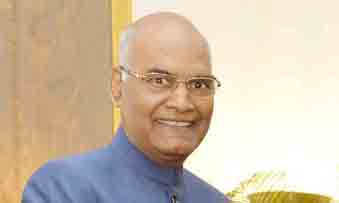INVC NEWS
New Delhi : The government’s committee, led by Ramnath Kovind, takes a monumental step towards ‘One Country, One Election.’ Learn about the challenges and the potential effects on regional politics .
Introduction
In a groundbreaking move towards streamlining India’s electoral process, the government has taken a monumental step by constituting a committee to explore the possibility of implementing “One Country, One Election.” This committee, set to be chaired by the former President of India, Ramnath Kovind, marks a significant development in the nation’s political landscape.
The Genesis of One Country, One Election
The concept of “One Country, One Election” revolves around the idea of holding Lok Sabha (Parliamentary) and assembly elections for all states simultaneously. This ambitious proposal is driven by several key factors, including financial considerations, administrative efficiency, and security concerns.
Financial Considerations
Conducting elections in India is an expensive affair, with significant financial resources required to organize polls at both the national and state levels. By aligning these elections, the government hopes to significantly reduce the financial burden on the country.
Administrative Efficiency
Frequent elections often lead to administrative stagnation, diverting valuable government resources towards election-related activities. The simultaneous conduct of elections would alleviate this issue, allowing the government to focus on critical matters of governance.
Security Concerns
Deploying security forces across the nation for various elections can be logistically challenging and costly. By consolidating elections, the government aims to enhance the deployment and management of security personnel, ensuring the safety and security of citizens during the electoral process.
Historical Perspective
The idea of simultaneous elections is not new to India. In the early years after independence, the country conducted Lok Sabha and state assembly elections concurrently. This practice continued until interruptions caused by premature dissolutions of assemblies and the Lok Sabha. As a result, India found itself in a cycle of frequent elections.
The Significance of the Committee
The formation of the committee, with Ramnath Kovind as its chairperson, is a significant milestone in the government’s pursuit of “One Country, One Election.” However, the path to implementation is far from straightforward, as it requires amending the tenures of several state assemblies, a move that is bound to face opposition.
Challenges Ahead
The government’s decision to hold simultaneous elections presents numerous challenges. One of the most prominent hurdles is the need to prematurely dissolve and amend the tenure of many state assemblies. This process is likely to encounter resistance from political parties and state governments.
Impact on Regional Parties
Political experts speculate that the implementation of “One Country, One Election” could have a profound impact on regional parties. In Lok Sabha elections, voters often prioritize national issues and favor national parties. Combining assembly elections with the parliamentary polls could potentially disadvantage regional parties.
National vs. Regional Dynamics
During Lok Sabha elections, voters tend to align with national parties, considering them as more capable of addressing broader issues. If assembly elections are held concurrently, regional parties may find it challenging to maintain their influence and secure electoral victories.
The Way Forward
The government’s decision to establish a committee to explore “One Country, One Election” is a bold step towards electoral reform. While challenges and debates are inevitable, the prospect of streamlining India’s electoral process holds promise. The committee, under the leadership of Ramnath Kovind, will play a pivotal role in shaping the future of India’s elections.
As the nation waits for further updates on the committee’s findings and recommendations, one thing remains certain: the discussion surrounding “One Country, One Election” has ignited a fervent debate in the Indian political arena.













